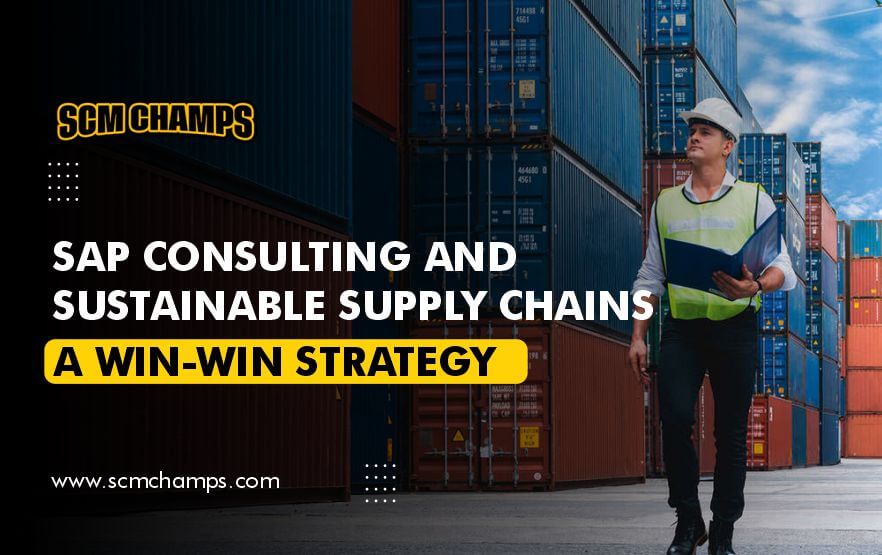
In today’s environmentally conscious world, businesses are increasingly under pressure to adopt sustainable practices throughout their operations. This includes building eco-friendly supply chains that minimize environmental impact and promote social responsibility. SAP consulting services can play a pivotal role in helping businesses achieve these goals by providing expert guidance and implementing innovative solutions.
Understanding the Need for Sustainable Supply Chains
Sustainable supply chains are becoming increasingly important for businesses for several reasons.
First, consumers are demanding more environmentally friendly products and services. They are also more likely to support companies that demonstrate social responsibility.
Second, governments are enacting stricter environmental regulations, making it more expensive for businesses to operate in an unsustainable manner. Third, companies that adopt sustainable practices can benefit from improved brand reputation, increased customer loyalty, and reduced costs.
How SAP Consulting Services Can Help
SAP consulting services can help businesses build sustainable supply chains in several ways:
Assessment and Planning: SAP consultants can assess a company’s current supply chain practices and identify areas where improvements can be made. They can then develop a plan for implementing sustainable practices across the entire supply chain.
Technology Implementation: SAP consultants can implement SAP software solutions that support sustainable supply chain practices. These solutions can help businesses track their environmental impact, manage their suppliers, and optimize their logistics operations.
Change Management: SAP consultants can help businesses manage the change process involved in implementing sustainable supply chain practices. This includes training employees, communicating with stakeholders, and addressing resistance to change.
Benefits of Sustainable Supply Chains
There are many benefits to building a sustainable supply chain, including:
Reduced environmental impact: Sustainable supply chains help to reduce greenhouse gas emissions, water consumption, and waste generation.
Improved social responsibility: Sustainable supply chains promote fair labor practices, safe working conditions, and community engagement.
Enhanced brand reputation: Businesses with sustainable supply chains are seen as more environmentally and socially responsible, leading to increased customer loyalty and improved brand image.
Increased cost savings: Sustainable supply chains can help businesses reduce costs by optimizing resource utilization, improving efficiency, and minimizing waste.
SAP Consulting Services: A Proven Track Record SAP consulting services have a proven track record of helping businesses build sustainable supply chains. For example, SAP has helped Unilever reduce its carbon footprint by 30% and its water consumption by 20%. SAP has also helped Procter & Gamble achieve zero waste in its manufacturing operations.
Conclusion
SAP consulting services can help businesses build sustainable supply chains that meet the needs of today’s environmentally conscious consumers and regulators. By implementing sustainable practices, businesses can reap a multitude of benefits, including improved brand reputation, increased customer loyalty, and reduced costs.
Additional Considerations
In addition to the benefits mentioned above, sustainable supply chains can also help businesses to:
Improve risk management: Sustainable supply chains are more resilient to disruptions caused by climate change and other environmental factors.
Attract and retain top talent: Millennials and Gen Z are particularly drawn to companies with strong sustainability values.
Access new markets: Sustainable supply chains can open up new market opportunities for businesses, particularly in emerging markets with growing demand for environmentally friendly products and services.
SAP consulting services can help businesses of all sizes to achieve their sustainability goals. By working with an experienced SAP consulting firm, businesses can develop and implement a comprehensive sustainability strategy that will deliver both environmental and business benefits.


